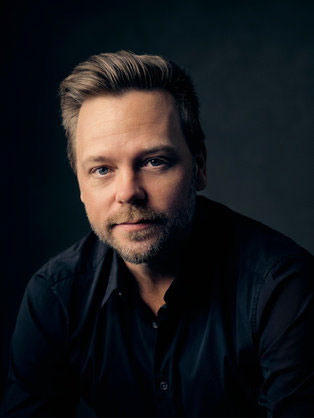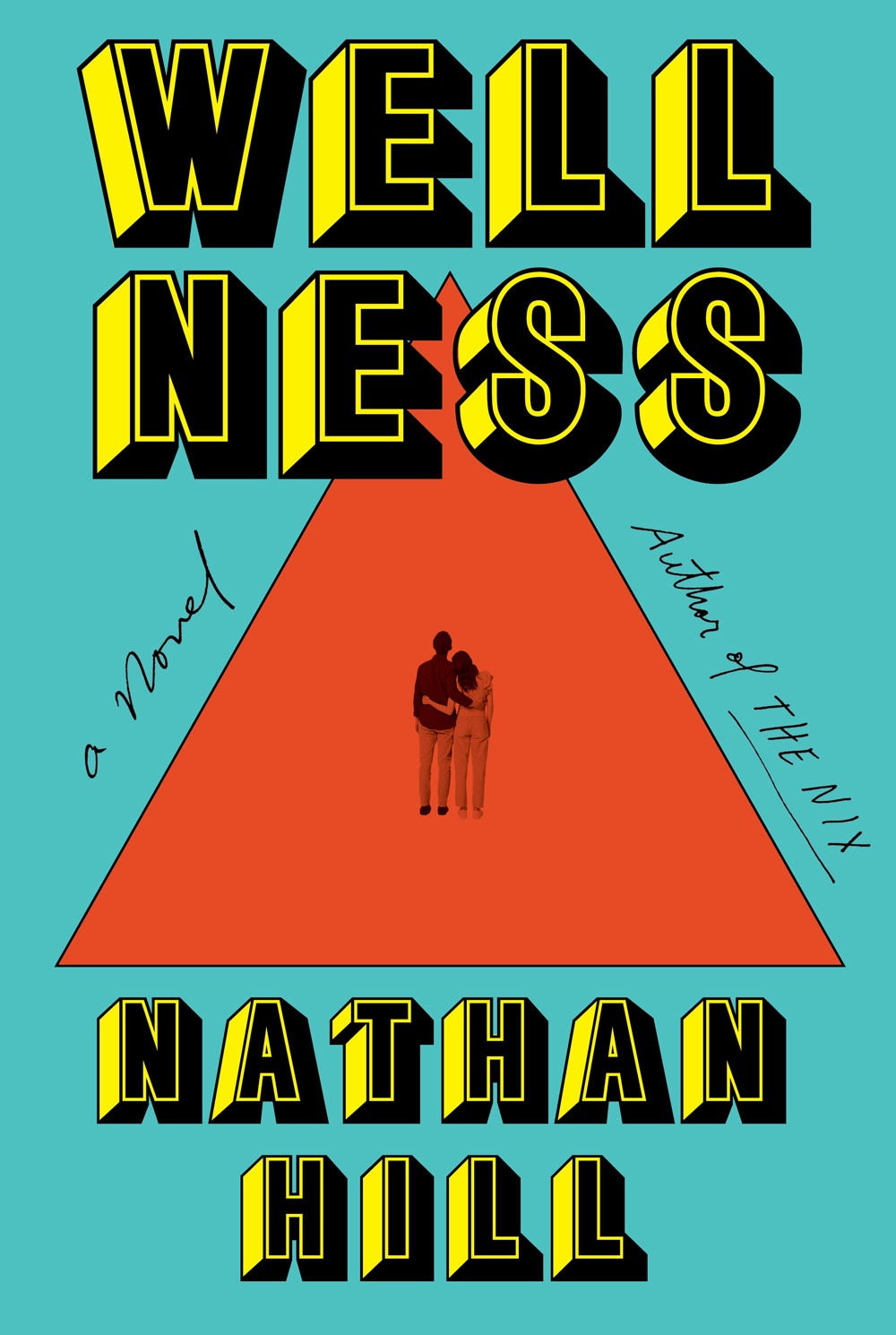Nathan Hill’s award-winning debut novel, The Nix, was set in Chicago and its suburbs. Similarly, his second book, Wellness, follows the life cycle of a young couple, Jack and Elizabeth, from their meeting in Wicker Park in the early 1990s, to their move to the North Shore. Hill has been observing Chicago for most of his life, mostly as an outsider: as a suburban kid, a road-tripping college student, and a summer visitor. He talked to Chicago about his obsession with the city, and why it’s a great setting for fiction. Hill will discuss Wellness on September 29th at 7 p.m. at Exile in Bookville, 410 S. Michigan Ave.

You’ve set both your books in Chicago. Why do you find Chicago such a great subject for fiction?
I lived on the outskirts of Chicago for a period when I was little, in Streamwood. I was in maybe third grade. And coming into Chicago was always such a thrill — seeing the Cubs games, or the aquarium, or whatever. We moved around a lot when I was a kid. We never stayed anyplace for much longer than two or three years. But I was always a Midwestern kid, and Chicago was the city for the Midwest. So I would always kind of come back.
I went to college in Iowa City, and of course, Chicago was the nearest real big city, and we would make trips there. That was the mid ’90s. And then my wife and I started spending our summers in Chicago, beginning in the early 2000s. She played until very recently with the Grant Park Symphony in the summers. We would make Chicago our home every summer for 15 years.
Frankly, because I moved around so much, I don’t really have a place that’s like home for me. Chicago is my adopted version of that. It was always this mythical big city when I was growing up, and then it was my actual home for summers for 15 years. There’s a lot of emotion wrapped up in the city.
When I was reading Wellness, I thought it was a modern version of books like Sister Carrie and Song of the Lark. In the early 20th century, when Chicago was the home of the naturalistic novel, you’d have these young ambitious characters from the hinterlands moving here. Do you see this book as being in that tradition in any way?
I don’t know those particular books, but there’s that piece in there, where Jack’s sister is telling him about Grant Wood, and how Chicago is this place where people from out in the prairie can go and make a name for themselves. I know that was always true for me. When I was in college in Iowa City, I desperately wanted to one day move to a big city, so trips to Chicago were balm for that itch. When my wife and I first started coming to Chicago in the summers, it was just like, “Okay, now I can live the life I want.” So I wasn’t self-consciously putting myself in that tradition, but I don’t disagree with that.
What are some of your personal remembrances of Wicker Park in those days?
It had this quality, it was where the cool people were. And I’ve always lived in the suburbs and grew up in small towns across the Midwest. My dad worked for Kmart. So I never felt very cool myself. It was inherited cool, like, maybe if I go to this place, I can be cool, too. But then, of course, whenever I would be in that place, I felt like an outsider. So it was kind of a Catch-22. But I remember the Empty Bottle. I remember cheap beer. It’s all pretty hazy now. But mostly I remember the feeling that this was a place where things were happening. I started going there ’95, ’96ish, so I was a little late to it, but I loved the scene there when I would visit in college and I loved the music coming out of there: Liz Phair, Smashing Pumpkins, Urge Overkill. I saw on Twitter that you were interested in the Wesley Willis reference.
How does Wicker Park today compare to Wicker Park in 1995?
I was drawn to write about Wicker Park because it’s among my favorite neighborhoods in Chicago. And my wife and I would come back every summer. Because you’d see it only once a year, every summer, I’d be like, “Oh, that that thing has changed. That business has left. And now there’s something new there.” I would notice small, individual changes that over time really added up to a very different feel than the Wicker Park of the ’90s. I think I decided to use Wicker Park as a setting because, of course, that’s what’s happening with my characters: they undergo all these small changes over time. And then you look back and you’re like, “Oh, my God, who have I become?” I felt like I could mimic the characters’ journey in the setting. And so the feeling of walking around is this neat sort of layering of time, because you’re looking at a building and you’re like, “Well, that was a sweatshop and then it was a warehouse. And then it was a coffee shop. And then it was the setting for a TV reality show. And then it was a gym.” You’ve got all these layers of time existing in one place. And that’s fascinating.
One thing I loved about The Nix was, I felt like it was the ’80s suburban childhood I never had, because I didn’t grow up in a suburb. But I got all my impressions of suburbia from John Hughes movies. I felt like in the ’80s when you thought of suburbia, you thought of a Chicago suburb. It was Risky Business and Home Alone. And then Jonathan Franzen just wrote a big book about a Chicago suburb. Why do you think that so many books and movies have portrayed the Chicago suburbs? Why is it such fertile territory? Because there is a big suburban element to this book, too.
I feel like there’s something about Midwesterness that has this blank slate quality to it. The West Coast has its baggage. The East Coast has its baggage, and there’s the Midwest, which is supposed to be sort of plain and simple. I don’t think that’s true. But I think that’s the cultural message. I talked about that in Wellness a bit, too, in terms of art: Artists came out to the Plains and couldn’t find any trees. And they were just like, well, this place is empty. There’s nothing here. So it’s always been someplace where the stories of the nation just get attached to, because it’s tabula rasa, it’s the Plains, it is, literally, plain. So you can kind of put whatever stories you want onto it. And Chicago is, of course, the capital city of the Midwest. So I think it makes sense that that urban, Midwestern dynamic would appear, and would be sort of lucrative for a lot of imaginations.
Will your next book be about Chicago?
I don’t think so. I think I might have reached my limit with it. I can’t say for sure. We’re not going to Chicago in the summers anymore. I’m feeling more and more distant from it every summer. I’m not sure where I’m going to set the next one.
What are your favorite novels set in Chicago?
I really dug this latest Franzen, Crossroads. His description of moving from the suburban space of the family to some more urban spaces and how people from one space have trouble understanding people from the other. It was just really, really well done. I also liked The Time Traveler’s Wife.
If Wesley Willis wrote a song about you, how would it go?
Oh, my God, that’s a great question. I saw him in concert once. He came to Iowa City, and he was in the basement of some bar and he just played all his greatest hits. It was him and his keyboard. It was fantastic.
How about this: “This man wrote one of the great novels about Chicago. He is a fine writer. Wellness whipped that llama’s ass. Nathan Hill! Nathan Hill!”
I fully endorse that song
Wheaties, Breakfast of Champions. Rock over London. Rock on Chicago.
There you go. You ended it very well.



